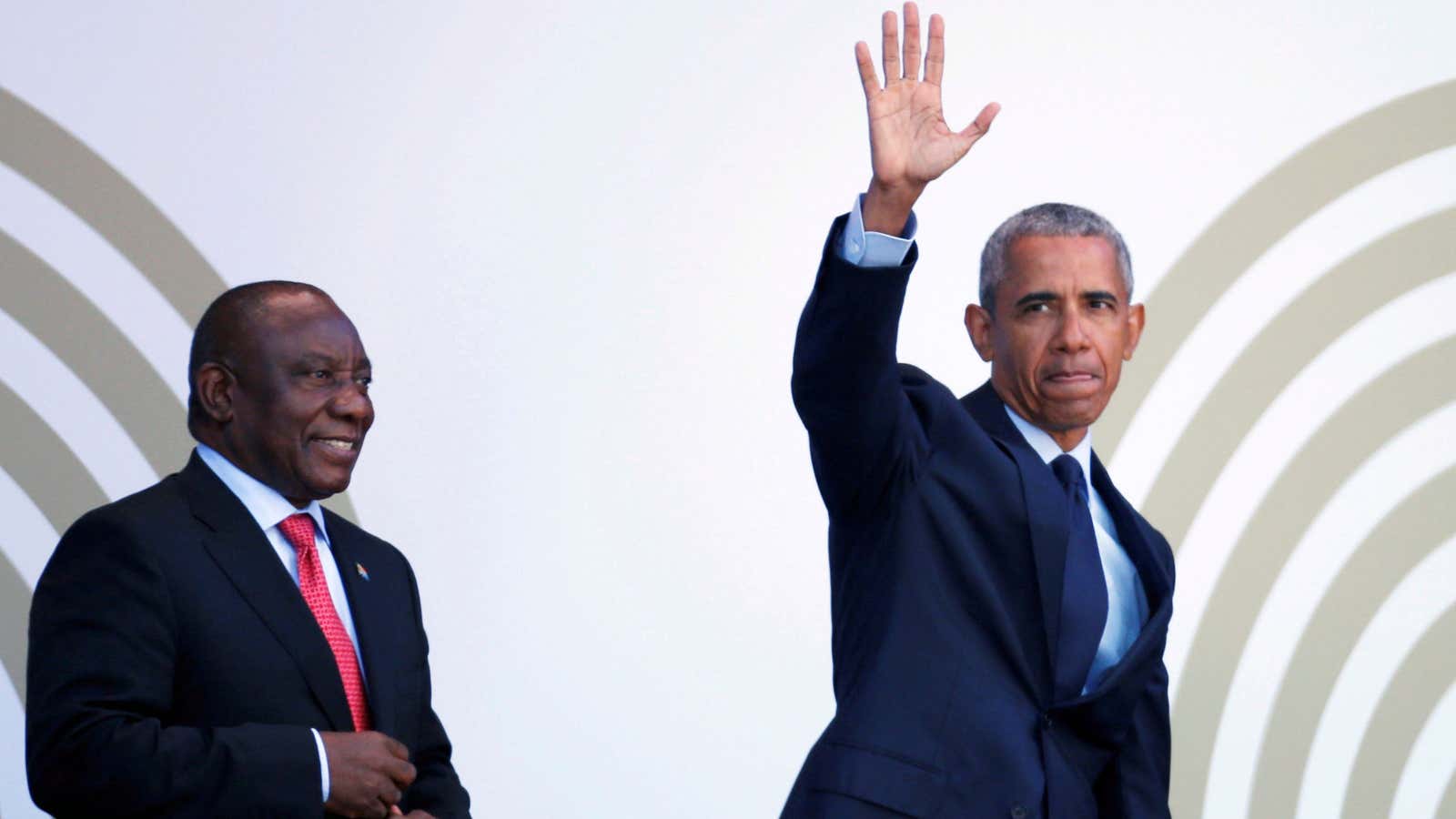In the era of president Donald Trump, Africa has slid far off the White House’s agenda, so former president Barack Obama’s visit to Kenya and South Africa this week has been met with a great sense of nostalgia.
During his presidency Obama championed stronger ties with the continent, not least of all because his father was Kenyan. Yet, when he delivered the annual Nelson Mandela lecture on July 17, Obama’s patience with his former counterparts on the continent seemed to have grown thin.
Without naming names, he threw jabs at what he saw was a worrying tone in politics on the continent, particularly the growing popularity of strongmen in leadership. This is worrying for continent that already has the largest share of longest-serving leaders.
Strongman politics are ascendant, suddenly, whereby elections and some pretense of democracy are maintained, the form of it, but those in power seek to undermine every institution or norm that gives democracy meaning.
Saying that no one person had the “monopoly on wisdom,” Obama urged African leaders to emulate Mandela’s legacy by respecting term limits. As flawed a system as democracy is, it its still the best way to bring economic opportunities to the world, he said. It’s why it’s important to protect all facets of democracy.
We have to stop pretending that countries that hold elections where sometimes the winner just somehow magically gets 90% of the vote while the opposition is locked up, or can’t get on TV, is democracy.
That democracy, Obama said, was the only way to ensure that principles of basic humanity and tolerance permeate society. Having just returned from Kenya, Obama seemed particularly frustrated with the pace at which human rights were becoming a universal right.
This is particularly important in some countries in Africa, particularly in my own father’s homeland—and I’ve made this point before—that basic human rights like freedom to dissent, the rights of women to fully participate in society, or the rights of minorities, for people not be beat up and jailed because of their sexual orientation, we have to be careful about saying that somehow that doesn’t apply to us, that those are western ideals rather than universal imperatives.
Undoubtedly, Obama’s broadside against African leadership will attract criticism from those who believe, in spite of his African roots and his huge popularity across the continent, he did little more than his predecessors to improve US relations with Africa. But that doesn’t make his comments wrong. Countries including Tanzania and Zambia are among those who have shifted along the authoritarian spectrum while a variety of African countries are trying to figure out ways to control or stifle debate on social media and online blogging.
